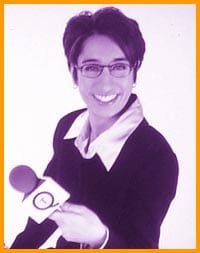Is it ethical to send out e-mail to hundreds of thousands of homos asking them to support something just because it’s queer?
Kishwar Iqbal launched an Internet campaign to generate nominations for the Gavin Crawford Show at the Canadian Comedy Awards.
“It’s no different than targeting any other group, whether it’s young people, artists or whatever,” says Iqbal, the agent for the gay comedian.
He says that everyone sends out e-mail to rally the support for their own community. Queers are no better or worse.
Iqbal admits that voting for a given artist just because they’re gay, rather than because of merit, is dodgy at best. But as a promoter he sees it as his responsibility to get the word out through any means necessary. How people use that information is up to them.
“Yeah, sure people will vote for things just because they recognize a name and see it associated with their community. People vote for federal MPs [just because they’re gay] without knowing what they stand for. We just try to get a name out there. If you don’t take the time to find out what your voting for, we can’t do anything about that.”
City TV’s Queer Television recently launched a community-wide World Wide Web campaign to get homos to vote for QT On-line as Most Popular Website, in association with the Gemini Awards.
The award was given based on audience votes – and host and producer Irshad Manji saw this as an opportunity to mobilize homo loyalty to queer media.
However, these contests are supposed to be about artistic excellence, not community support.
According to Manji, rallying queers to vote for a homo cultural product doesn’t detract from judging it by its creative worth. “Merit ought to be the number one reason for supporting any community campaign. Otherwise, you’re not developing anything – you’re infantilizing it.
“Whether it’s a book or an on-line call to vote for Matt Shepard as Time’s man of the year, if the premise strikes me as a hollow one, I don’t validate it with my vote. Nor would I ask anyone else to.”
(Time magazine’s on-line poll allowed for visitors to write in Matthew Shepard as man of the year in 1998; Shepard was murdered after he made a pass at another man. He didn’t win the poll.)
Manji argues that queer cultural producers are still struggling underdogs and need to take advantage of inexpensive ways, like e-mail distribution, to take on mainstream media giants.
“We knew that our rivals (many of whom had the advantage of nation wide TV exposure or daily broadcast or both) wouldn’t be shy about leveraging their networks, including their e-mail networks, for publicity…. [So] we had no ethical problem with getting scrappy, passionate, even cheeky in our outreach.”
In fact, QT is a for-profit endeavour backed by a media giant. But Manji says there’s more to it.
She’s convinced that technological networking will promote the strong and successful queer culture of the future. “Conducting an e-mail campaign to help win a Most Popular Website contest would help testify that queers are on the cutting edge – not just of trends like fashion, but also on economic indicators like technology.”

 Why you can trust Xtra
Why you can trust Xtra


